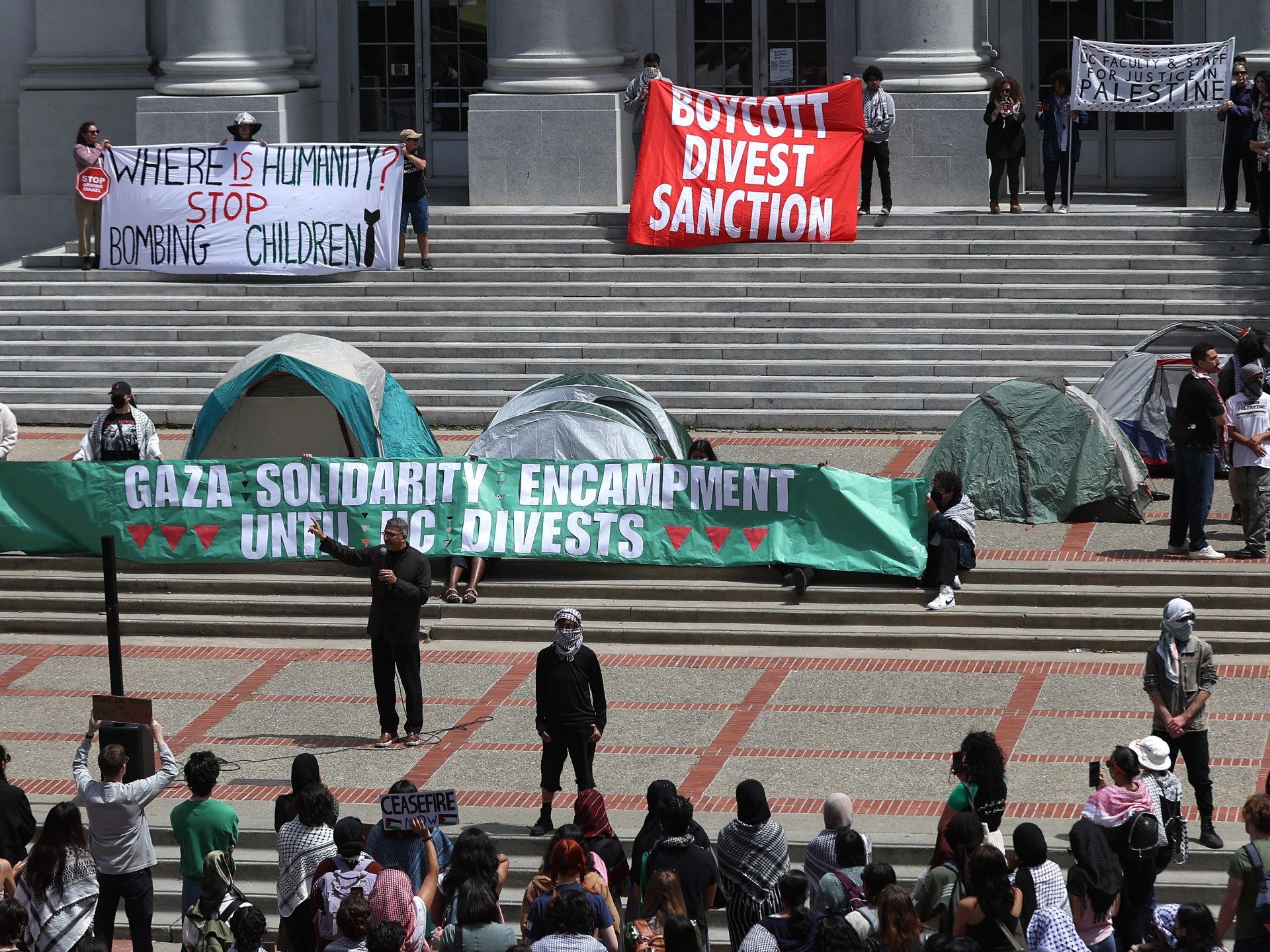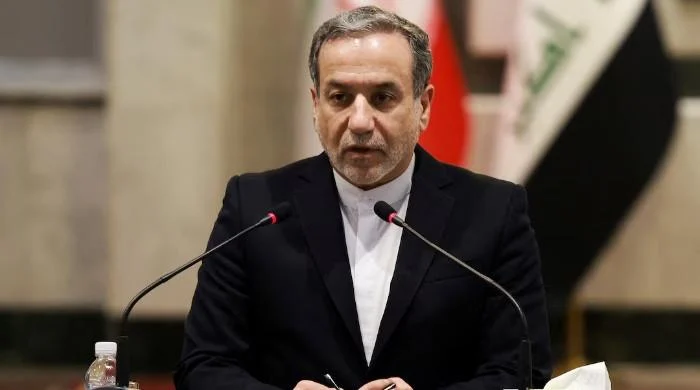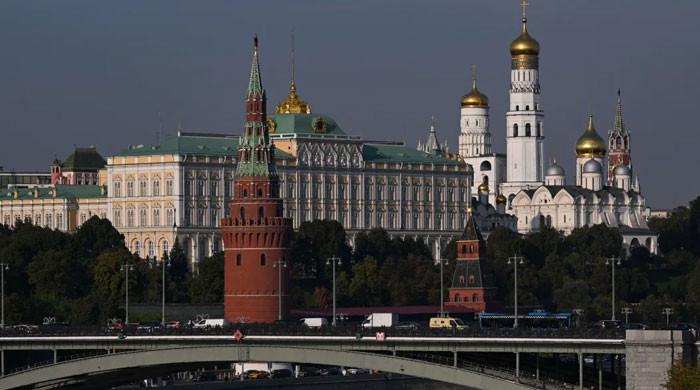Los Angeles California – As the war in Gaza enters its eighth month, Israel's military campaign, one of the most destructive in modern history, has killed nearly 35,000 Palestinians, most of them women and children.
The death toll, as well as the ongoing humanitarian crisis in Gaza, has many progressive and pro-Palestinian activists in the United States criticizing their country's role in the war.
The United States has long been Israel's closest ally, providing the country with about $3.8 billion each year in military aid. Critics have criticized that support, as well as the billions of dollars in additional assistance used to bolster the war since it began in October.
However, on American college campuses the reaction is especially fierce, as students question their universities' relationships with weapons manufacturers and other companies with ties to Israel's military.
“These are supposedly social justice-oriented institutions, but their actions say something completely different,” said Sinqi Chapman, a freshman at Pomona College, a liberal arts institution in Claremont, California.
Chapman was among student protesters arrested last month for setting up a pro-Palestinian camp on school grounds. The demonstration was part of an effort to force the university to cut its ties with Israel and any companies that support its military campaign in Gaza.
“In time, we will look back and see that we were on the right side of history,” Chapman said.
“And the administration will have blood on its hands for waiting 209 days and counting it as genocide to respond to the divestment demands of students, faculty and staff.”
Historically close ties
For decades, higher education institutions in the United States have collaborated with the country's aerospace and defense sectors, the largest such industries in the world.
Concerns about the implications have also persisted for decades. In 1961, for example, former President Dwight Eisenhower warned of the dangers of the “military-industrial complex” entering the academic sphere.
“Partly because of the enormous costs involved, a government contract becomes virtually a substitute for intellectual curiosity” in university research, he said in a speech.
Daniel Bessner, a professor of international studies at the University of Washington, told Al Jazeera that the Cold War set the stage for relationships between universities and military contractors to flourish.
When the Soviet Union launched the world's first artificial satellite, Sputnik, in 1957, the event forced the United States to confront the possibility of falling behind the technological achievements of its rivals.
So the United States Congress passed the National Defense Education Act in 1958, to put universities on a “war footing.” Lawmakers found that higher education funding could gain greater political support if it were promoted as improving the country's military and technological prowess.
Bessner also notes that President Eisenhower signed the law into law, despite doubts he would later express. Pentagon money began to flow to universities and research institutions.
That entanglement between academics and the military became particularly prominent in California, a state known for its temperate climate and its aerospace and defense sectors. The state Office of Economic and Business Development estimated that the defense industry alone generates more than $158 billion annually, as of fiscal year 2021.
“Blue skies are good for two things: filming movies and flying airplanes,” Bessner said.
Clashes with university activism
But California was also a hotbed of student activism, a tradition that continues to this day.
Chapman, a freshman at Pomona College, said he was inspired by a long history of protests when he took a leadership role at his campus encampment.
In the past, for example, students have organized against the Vietnam War, U.S. support for apartheid in South Africa, and the Iraq War.
“The only reason students are protesting is because our institutions are aiding and abetting genocide in Gaza, just as they financed apartheid in South Africa in the past,” Chapman told Al Jazeera.
“We are following the brave students who came before us who dared to challenge their school's investments in the war.”
Many student protesters have targeted their schools' multimillion-dollar endowments as a target of their activism.
Those financial endowments often use investments in a variety of industries, including defense, to ensure the campus can fund its long-term operations.
But while endowments are often at the center of calls for divestment, activists say collaborations between universities and defense companies can come in myriad forms.
Those ties are especially prevalent in science, technology, engineering and mathematics (STEM) departments, where activists say weapons and aerospace companies exert influence through research projects, recruiting, job fairs and school donations.
At Harvey Mudd College, a STEM-focused school in Southern California, a participant in the student group Mudders Against Murder told Al Jazeera that influence is rarely directly related to weapons production.
“A lot of this is disguised as something that sounds more neutral, like aerospace. “They are not advertising the fact that they make weapons,” said the participant, who declined to give his name for fear of retaliation.
“The school prides itself on producing 'socially conscious scientists,' but you are never encouraged to think about the role you will play if you work at one of these companies.”
Calls to divest
Many schools still proudly tout their ties to defense companies.
The engineering and science center at the University of California, Santa Barbara (UCSB), for example, presents ties with defense contractor Raytheon as a “success story” on its website.
Weapons companies such as Raytheon, Northrop Grumman, Boeing and Lockheed Martin are also listed on a website for the university's corporate affiliate program. All but Lockheed Martin were included on a list of companies that cumulatively donated $1 million to the university in the 2022-2023 fiscal year.
Raytheon did not respond to a question from Al Jazeera about cooperation with American universities, but weapons contractors have defended such connections as mutually beneficial partnerships that offer students valuable experience while promoting scientific research.
However, not everyone trusts those motivations, and schools across the country have faced calls to distance themselves from weapons manufacturers and government defense operations.
“Many graduate students were wondering what their response should be to the genocide in Palestine,” Isabel Kain, an astronomy graduate student at the University of California, Santa Cruz, told Al Jazeera.
He organizes with the group Researchers Against War, which encourages graduate students to mobilize against ties between academic institutions and the military.
“The Palestinian Federation of Trade Unions called on workers to stop arms deliveries, including military funding and research, and we think, as workers at these universities, that this is something where we can use our work to disrupt ”.
Kain added that the growing unionization of graduate students has given them more power to exercise their demands.
Starting Monday, UAW 4811, a union representing about 48,000 graduate student workers in California, will vote to authorize a strike in response to the university's crackdown on pro-Palestinian protesters.
In recent weeks, police have been called in to break up protest camps at schools such as the University of California, Los Angeles (UCLA), leading to a harsh crackdown on protesters and dozens of arrests. The camp was earlier attacked by a pro-Israel mob wielding metal pipes and mace while law enforcement stood by.
UPDATE: The UC had the option to de-escalate and negotiate with protesters, but chose to demolish the Palestinian Solidarity Camp using stun grenades and rubber bullets. Arrests have been made, including members of UAW 4811.
—UAW 4811 (@uaw_4811) May 2, 2024
The union's vote is intended to send a message to school administrators that the police action violated students' free speech rights and that universities should instead engage with protesters' demands.
“We are in a very different time, because graduate students are unionized to a greater extent,” Kain said. “That gives us an advantage that wasn't available before.”
Influence the next generation
However, tensions between students and military ties between campuses will go beyond the current war in Gaza.
Analysts say investments in university campuses can be seen as part of a larger effort by the military and related industries to insert themselves into academic, cultural, scientific and political institutions.
Access to universities, they explain, can allow companies to access young professionals who are prepared to enter any number of fields.
“Everywhere you look, you can see the influence of these companies, from think tanks and universities to video games and popular movies,” said Benjamin Freeman, director of the democratization of foreign policy program at the Quincy Institute for Responsible Statecraft, an American institution. based expert group.
“These are huge industries, and when it comes to college campuses, especially in STEM, it has a huge influence on the direction of talent.”
Freeman asks how young students might be shaped by their early professional encounters with aerospace and defense companies, and how the ideals of those companies might shape their contributions to society as a whole.
“Instead of a promising young student working in green energy, for example, they are steered toward companies for which weapons development is their biggest source of income,” Freeman explained.
“Telling a young, idealistic college student that he can come work for you and do interesting research that will make a difference in the world when, in fact, he's more likely to work on weapons is a pretty nasty bait-and-switch. .”












